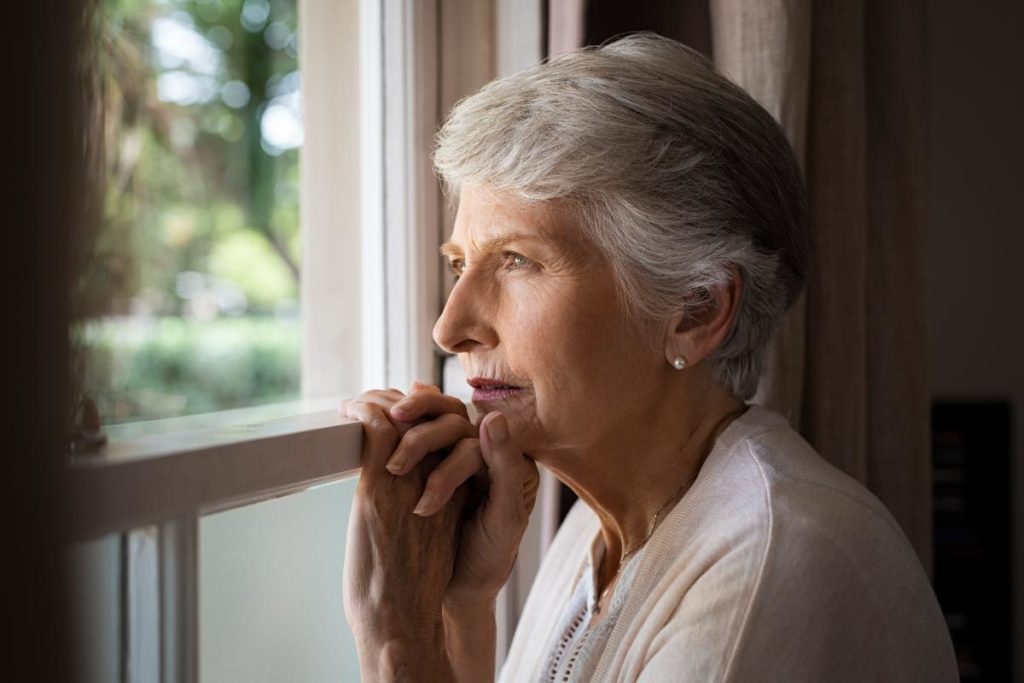Anxiety is never fun at any age, but it can be especially difficult to manage as a senior. Anxiety disorders are the most common mental health condition in adults, and seniors are more likely to experience anxiety than any other age group.
Anxiety disorders can cause a number of uncomfortable and even frightening symptoms. One of the most beneficial things you can do when experiencing anxiety is to manage the symptoms so that they don’t take over your life. At Baptist Retirement Community, we understand how anxiety in seniors can cause significant discomfort. Call us today at 325.313.7931 to learn about our health and wellness programs.
Seniors and Anxiety
Anxiety in seniors looks different than anxiety in other age groups. It can be caused by several things, including:
- Retirement
- Isolation
- Loneliness
- Health concerns
- Death of a spouse or friends
- Move to a new home
It’s important to be aware of the triggers so that you can manage the symptoms more effectively. Symptoms can range from mild to severe. Anxiety can also be debilitating, and it’s important to get help if the symptoms are interfering with your day-to-day life.
Anxiety in seniors symptoms include:
- Chest pain
- Heart palpitations
- Sweating
- Shortness of breath
- Dizziness
- Nausea
- Trouble sleeping
- Muscle tension
- Restlessness
- Fatigue
- Irritability
Managing Anxiety Symptoms
Here are some tips for managing anxiety in seniors:
1. Identify the triggers. There are a number of things that can trigger anxiety in seniors. It’s important to be aware of the triggers so that you can manage the symptoms more effectively.
2. Understand the symptoms. Symptoms can range from mild to severe. Anxiety can also be debilitating, and it’s important to get help if the symptoms are interfering with your day-to-day life.
3. Seek professional help. If the symptoms are severe, it’s important to seek professional help. A therapist can help you learn how to manage the symptoms and live a more fulfilling life.
4. Get moving. Exercise is a great way to reduce anxiety. It can help to take a brisk walk, go for a swim, or take a yoga class.
5. Connect with others. Social interaction can help to reduce anxiety. Join a club, attend religious services or volunteer.
6. Relaxation techniques. There are a number of relaxation techniques that can help to reduce anxiety. Try deep breathing, progressive muscle relaxation, or visualization.
7. Don’t self-medicate. It’s important to avoid self-medicating with alcohol or drugs. This can make the symptoms worse and lead to addiction.
Anxiety Disorders in Seniors
Anxiety disorders are the most common mental health condition in adults, and seniors are more likely to experience anxiety than any other age group. There are a number of different types of anxiety disorders, and each one has its own set of symptoms:
- Generalized anxiety disorder (GAD) is the most common type of anxiety disorder in seniors. GAD is characterized by persistent and excessive worry about a number of different things.
- Social anxiety disorder (SAD) is another common type of anxiety disorder. SAD is characterized by a fear of social situations. People with SAD may avoid social interactions, gatherings, and events.
- Panic disorder is characterized by sudden and unexpected episodes of intense fear. These episodes can include a pounding heart, shortness of breath, and dizziness.
- Agoraphobia is a type of anxiety disorder that is characterized by a fear of public places. People with agoraphobia may avoid leaving their homes or may only go out with someone else.
Learn About Anxiety in Seniors at Baptist Retirement Community
At Baptist Retirement Community, we understand how anxiety affects seniors, and we do our best to provide resources and support. Contact or call us today at 325.313.7931 to learn about our services.

